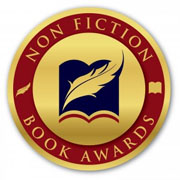— APPLY NOW —
REGISTRATION IS OPEN FOR 2025!
It's time to enter the 2025 Global Ebook Awards
CLICK HERE TO VIEW 2025 CATEGORIES
— ANNOUNCING —
2024 Global Ebook Awards
Winners List
Congratulations to all the winners of the 2024 Global Ebook Awards!
https://globalebookawards.com/2024-global-ebook-award-winners-2-2/CLICK HERE!
— SPONSORS —
Global Ebook Awards encourages specific programs and services that benefit authors and publishers and some of those are among our sponsors. If you would like to be considered for sponsorship, please contact us.






National Indie Excellence Book Awards

San Francisco Writers Conference

Smashwords






National Indie Excellence Book Awards

San Francisco Writers Conference

Smashwords
 Smashwords News
Smashwords News
- Eighth Annual Smashwords End of Year Sale Now Underway - 200,000+ books free and on sale
- 15th Annual Smashwords Read an Ebook Week Sale Begins March 3rd
- Seventh Annual Smashwords End of Year Sale Begins December 15
- Draft2Digital to Distribute 500,000 Indie eBooks to Palace Marketplace, a Digital Content Marketplace for Libraries









FYI, I’m posting my review here:
The story in a nutshell – April, 1974: Lilly, a bright college girl (Sara Lawrence) attempts suicide and commits herself to a mental hospital in New York City. She’s driven, we gather, by guilt over her father’s incapacitation, a smothering Jewish mother (actually, Israeli), and a boyfriend who left her because she withdrew sexually from him. Any kind of intimacy terrifies her – not only sexual, but close friendship with other human beings. Here, for instance, we get a glimpse of her pain:
She had a love disease of flammability; love was dangerous. Intimacy made her feel as though her bowels were crying out. Everything inside her was as fragile as the web a spider spins on a tree branch in the midst of a forest fire.
Three months and 193 pages later, Lilly is about to be released. She’s “no longer a threat to herself,” her discharge form reads. Is she “well” now? We don’t know. Neither does she.
Hystera jumps into Lilly’s life with a bang. On page one, we’re in her head, on a steel table, looking up at Beverly, a huge nurse readying Lilly for a medical exam. Lilly’s thoughts whiplash from image to image. Snippets from her past fly by: the mysterious “bulb” between her legs; mother; father; boyfriend; roommate; the day’s freezing weather.
We learn that her stomach has been pumped, the suicide unsuccessful; some hours have gone by. Details of the exam, the exam room, the nurse’s actions pile onto details. The nurse hones in: it’s a pelvic exam. Lilly is locked into the stirrups, she can’t get away. She’s petrified, but she both orgasms and goes berserk. She comes to, hours later, drugged, in the hospital “quiet room,” with its padded walls and locked door.
Lilly’s orgasms come fast and furiously; they’re a predominant metaphor in the novel. The book’s title, Hystera, comes from hysteria, the author tells us – not the shrieking emotional outbursts that word means today, but from the Greek Hysteria, “the wandering uterus” (when folks thought the uterus was a separate being, sort of “an animal within an animal,” that could wander about a woman’s body and cause bodily paroxysms).
Lilly has discovered a “bulb” between her legs that seems the cause of frequent, wild orgasms. They come, not in a lover’s embrace, or even her own devices, but in her nightmares, from random thoughts, in being alone. They’re fiery and frightening. But is the “bulb” real? Is it her labia “swelling into the shape of a large teardrop,” as she first imagines. Or is it a cyst, a tumor, a pregnancy . . . or a delusion, something conjured up in her tortured mind? She doesn’t know. Neither do we.
At times, Hystera, is tough going. We stay in Lilly’s mind. The scene shifts abruptly from place to place, and always in her mind – from hospital, to childhood home, to student apartment in Little Italy, to the Sara Lawrence library, to long, wandering discussions with hospital patients, and interactions with staff and sessions with Lilly’s staff psychiatrist. It shifts without warning. I had to stop, think, figure out where we were, then push on, try to figure out where we were going.
And the language: it’s learnéd, plenty of multi-syllabic words, and long, complicated sentences studded with imaginative metaphors. It’s replete with vivid descriptions – I could smell and taste Little Italy – and insightful comments. I copied down a dozen passages — too many to delight you with here – like this one that conveys so much, so simply: “You think too much, Lilly,” Louise went on. “You’d be a lot better if you didn’t talk like a book.” But the language also can get carried away with itself, rolling in on itself like a stormy tide. Several times I had to stop, ask myself, what? What are we talking about here? Here Lilly is, for instance, in that opening medical exam:
Her physical body was hurling torn shreds and pieces of the examination table paper in a tantrum, and she was screaming. But then — she was past her body, as if a space had blown out, taking everything with it into a great expansive nothing, an in-rushing of gas and matter and darkness.
Language and scene both jump and twist and scoot off in unexpected directions. At times, it’s hard to follow.
But all the confusion is one of the beauties of this novel: that’s Lilly’s mind, trying to sort out reality from illusion, trying to cope with a world she’s not comfortable in. Skolkin-Smith takes us on a vivid, compelling journey into the delusional reality of a young woman’s mind.
Hystera plunges me into Lilly’s world, lets me see it through her eyes, let’s me become Lilly and look at a world I’m not familiar with. It left me thinking of Lilly. Days later, I can’t get her out of my head.
That’s enough, I know. I should end my review here. You should read the book yourself. But I can’t leave off without mentioning two other reasons for reading Hystera:
First, the novel is set in 1974, April through July 20. During these months, Patty Hearst and the Symbionese Liberation Army dominated our nation’s news. Skolkin-Smith expertly weaves Patty’s story into the very texture of Lilly’s life – from the 10th line of the first page: “You’re a dark girl,” the nurse said. “You look a little like Patty Hearst”— to Lilly and other inmates reading the headlines, speculating whether her SLA abductors had raped Patty, and Lilly thinking of herself as Patty: “She imagined the mesmerizing hands of Patty Hearst’s abductor, his criminal cock stealing into her sex with the force of a beating hand. He was fierce and seductive in the pictures, like the cobra on his leather belt.”
That’s how Patty Hearst and the SLA hit us in 1974. They became part of our own lives. We worried about her, ached for her. Those memories came rushing back in vivid color as I read Hystera.
Second, Skolkin-Smith integrates her theme of Greek Hysteria throughout the novel, but most notably in a wonderfully evocative scene of Lilly recounting her trip back to the Sara Lawrence library. She hides out, then spends the night alone in the locked library devouring ancient texts on alchemy. We get a fascinating glimpse into those old texts, then we get this:
Lilly searched and found the bulb in different alchemy books. The bulb between a naked woman’s legs was in one of the illustrations made by Maria the Jewess from Babylon in the second century. Finding it, Lilly felt her body lighten as if she had crossed through the barrier of her shame. There were other women like this>, she thought. Like her.
How relieved Lilly must have been; she wasn’t alone after all . . . or delusional. Here was proof.
Well done Ms. Skolkin-Smith.
Reviewed by Terry Marshall
Multicultural literature judge,
2012 Global Ebook Awards
http://www.TerryMarshallFiction.com
http://www.SodaSprings-TheBook.com